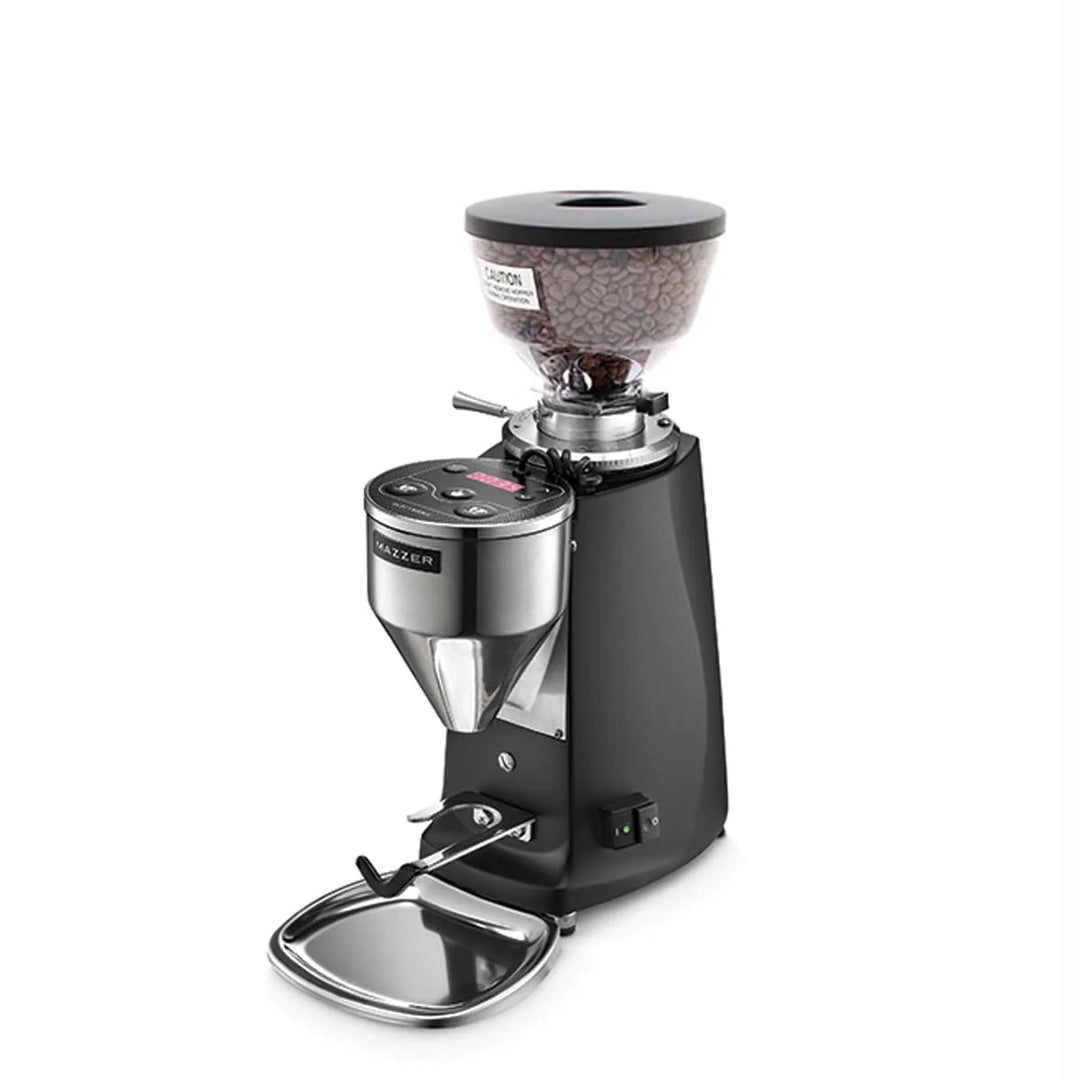Industrial Coffee Grinder Overview: Increase Efficiency and Top Quality
In the affordable landscape of coffee manufacturing, selecting the best industrial coffee mill plays a crucial role in improving both performance and item quality. Recognizing the subtleties of different mill types and vital functions-- such as adjustable work setups and robust building and construction-- can substantially affect the last flavor profile of the coffee.
Understanding Grinder Kinds
When picking a commercial coffee grinder, understanding the various kinds readily available is critical for maximizing both taste extraction and operational performance. Both main types of grinders are blade mills and burr grinders. Blade mills use sharp blades that slice coffee beans into irregular sizes, leading to irregular removal and potentially unwanted tastes. While blade grinders are usually extra ideal and affordable for small procedures, they are generally not advised for industrial usage.

Eventually, picking the best kind of grinder is essential to keeping quality and performance in coffee production, making it necessary for companies to purchase top quality burr grinders for optimum outcomes.
Key Features to Consider
Choosing an industrial coffee grinder requires cautious factor to consider of numerous crucial attributes that can substantially influence both performance and the overall coffee experience. Among the main elements to examine is the grinding device. Burr mills are typically favored over blade grinders, as they provide a constant work dimension, which is important for optimum extraction and flavor.
One more crucial function is the grinder's capacity. Depending upon the quantity of coffee you require to procedure, pick a version that can manage your needs without giving up rate or quality. Additionally, take into consideration the work setups supplied. A functional mill with numerous setups permits you to customize the work size to different brewing methods, enhancing the coffee's flavor account.
Examine the grinder's sound level, particularly in a busy coffee shop or production atmosphere, where too much noise can be turbulent. Investing in a mill that stabilizes these functions can substantially improve both functional efficiency and the high quality of the coffee offered.
Optimizing Grinding Process
To attain the best outcomes in coffee prep work, enhancing the grinding procedure is important. The work dimension considerably influences removal, flavor, and overall high quality of the made coffee. Various developing approaches call for details work sizes; for example, coffee requires a fine grind, while French press requires a crude texture. Comprehending the partnership between grind size and brewing approach is the very first step in optimization.


In addition, monitoring the grinding speed can optimize the process. Slower grinding frequently creates less heat, protecting delicate flavors and aromas. Conversely, faster grinding might create too much warmth, adversely affecting the coffee's high quality.
Maintenance and Care Tips
Correct upkeep and treatment of industrial coffee grinders are essential for making sure optimal performance and longevity. Regular cleansing is the structure of maintenance; residue buildup can influence taste and grinding effectiveness. It is a good idea to clean up i thought about this the mill after each usage, cleaning down the outside and eliminating any coffee grounds from the burrs.
In addition, check the grinding burrs for deterioration. Dull burrs can endanger grind consistency, so they need to be changed directory as required. Industrial Coffee Grinder. Occasionally adjusting the grinder is additionally critical, as this preserves the preferred work dimension for various developing approaches
Lubrication of moving parts ought to be carried out according to the producer's specifications, as this decreases friction and lengthens the life of the devices. It is necessary to make use of food-grade lubes to ensure safety and security and compliance with wellness policies.
Last but not least, keep the mill in a dry and steady environment to stop rust and rust. By sticking to these maintenance and treatment pointers, operators can boost the efficiency of their commercial coffee mills while guaranteeing high-quality outcome and expanded operational life.
Return on Financial Investment Evaluation
Assessing the return on financial investment (ROI) for commercial coffee mills is crucial for companies looking for to maximize their coffee manufacturing capacities. An extensive ROI evaluation aids identify the financial stability of investing in high-grade mills, enabling businesses to weigh the initial expenses versus possible gains.
Examine the purchase price of the mill, including installment and any type of required alterations to existing facilities. High-performance grinders usually lead to minimized official statement grinding time and enhanced throughput, which can significantly boost efficiency.
Additionally, take into consideration the influence on item high quality. Industrial Coffee Grinder. Superior mills produce a more regular grind dimension, which can improve taste profiles and client complete satisfaction, inevitably driving sales. By boosting the quality of the last product, businesses can validate higher rates, resulting in increased earnings
Verdict
In summary, a commercial coffee mill plays a critical duty in improving both effectiveness and product high quality within coffee production. By selecting top quality burr grinders equipped with vital features such as flexible work settings and long lasting construction, organizations can guarantee optimum flavor extraction. Regular maintenance is critical for sustaining grinder performance and taking full advantage of consumer satisfaction. Ultimately, the tactical investment in a trustworthy mill adds significantly to improved revenue and competitiveness in the coffee industry.
In the affordable landscape of coffee manufacturing, choosing the best industrial coffee mill plays a crucial duty in improving both effectiveness and product top quality. The 2 main types of grinders are blade mills and burr mills. Within the burr grinder group, there are level burr grinders and cone-shaped burr mills, each with its benefits. Burr grinders are generally preferred over blade grinders, as they give a consistent grind dimension, which is crucial for optimal removal and flavor.
In recap, a commercial coffee grinder plays a pivotal duty in improving both efficiency and item high quality within coffee production.